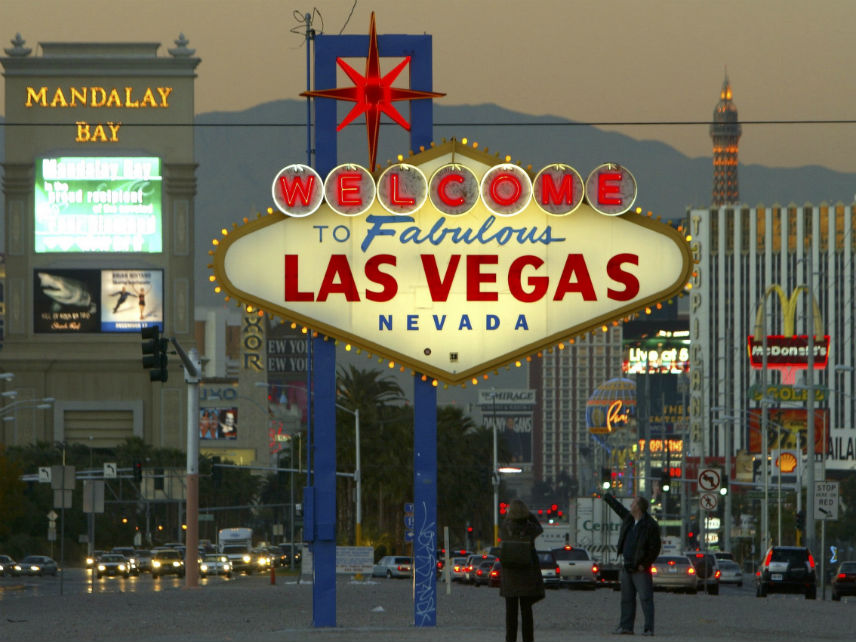Poor and Minority Neighborhoods Bear the Brunt of Asset Forfeiture in Las Vegas
Data obtained by a Nevada think tank show where Las Vegas police use civil asset forfeiture.

When Las Vegas police seized property through civil asset forfeiture laws last year, they were mostly likely to strike in poor and minority neighborhoods.
A report released last week by the Nevada Policy Research Institute (NPRI), a conservative think tank, found the Las Vegas Metropolitan Police Department raked in $1.9 million in asset forfeiture revenue in 2016. Two-thirds of those seizures occurred in zip codes with higher-than-average rates of poverty and large minority populations.
The 12 Las Vegas zip codes most targeted by asset forfeiture have an average poverty rate of 27 percent, compared to 12 percent in the remaining 36 zip codes. Clark County, Nevada, has an average poverty rate of 16 percent.
The 12 most targeted zip codes also have an average nonwhite population of 42 percent, compared to 36 percent in the other remaining zip codes.
Under civil asset forfeiture laws, police may seize property they suspect of being connected to criminal activity. The owner then bears the burden of challenging the seizure in court and disproving the government's claims. Law enforcement groups say civil asset forfeiture is a vital tool to disrupt drug trafficking and other organized crime by cutting off the flow of illicit proceeds.
But a bipartisan coalition of civil liberties groups and lawmakers have been calling for the laws to be reformed, saying asset forfeiture's perverse profit incentives and lack of safeguards leadspolice to shake down everyday citizens, who often lack the resources to fight the seizure of their property in court.
"The most troubling aspect of this practice is that the seizing law enforcement agency directly profits from the forfeitures," NPRI researcher Daniel Honchariw said in a statement. "And in the vast majority of cases the value of the property seized is less than the likely legal fees needed to contest the seizure, making the whole process nothing more than a form of legalized theft—with the government as the perpetrator."
The NPRI report found that more than half of all 2016 seizures were for amounts under $1,000, and 28 of those seizures were for $100 or less. The lowest amount seized was 74 cents.
The findings are similar to a Reason analysis of asset forfeiture data in Chicago earlier this year. That analysis of more than 23,000 property seizures over a five-year period found that seizures tended to focus on the South and West Side of Chicago, predominantly minority neighborhoods with high poverty rates. Likewise, the median value of a seizure was around $1,000, far from major cartel busts.
Illinois does not require an accompanying criminal conviction to begin a forfeiture action. Thanks to civil asset forfeiture reforms passed in 2015, Nevada in most cases does. But in the civil process, property owners must pay for their own lawyer if they choose to contest a seizure, and prosecutors enjoy a lower standard of evidence to win their case than in criminal court. Police can seize cash, cars, and even homes allegedly linked to illegal proceeds.
Of the 295 police seizures that occurred in Clark County that year, all but 16 were connected to alleged drug offenses.
The Las Vegas Metropolitan Police Department did not immediately respond to a request for comment.
More than 20 states have passed some form of asset forfeiture reform in recent years. New Mexico and Nebraska, for example, completely abolished civil asset forfeiture.
The NPRI report concludes that the evidence "supports the position that the practice of civil asset forfeiture should be abolished completely. A system of criminal forfeiture, reliant upon the same due-process protections afforded to criminal defendants, should instead become the norm."


Show Comments (40)